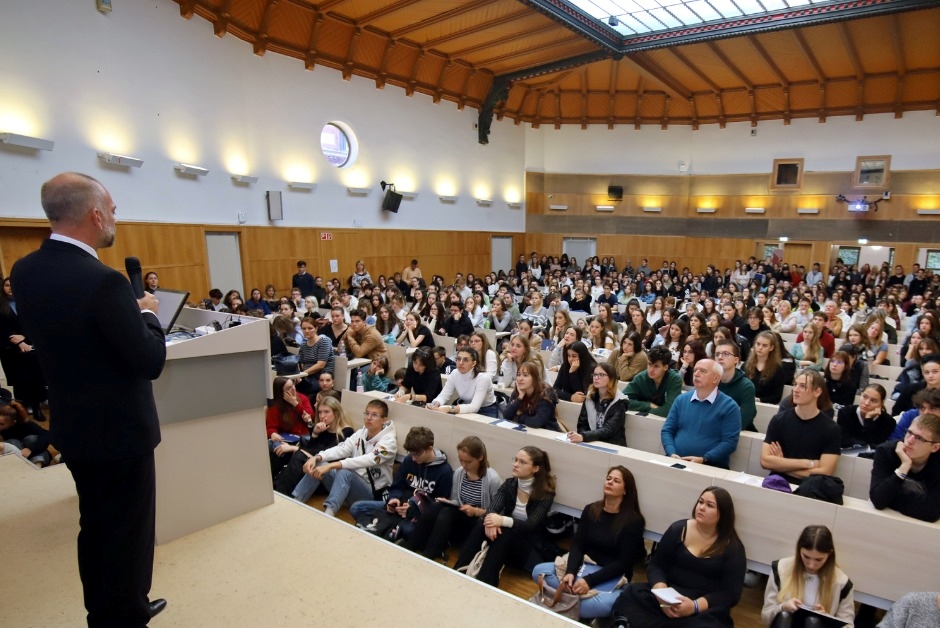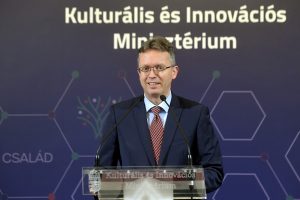
The joint research will aim to diagnose diseases at an early stage with a simple blood test.Continue reading

It is frustrating that Hungary is unable to assert itself in Brussels on Erasmus, the Minister of Culture and Innovation told Origo in an interview published on Friday. Balázs Hankó discussed in the interview how Hungary has so far managed to overcome the difficulties arising from the Erasmus issue, and talked about the Hungarian academic life as well as Nobel Prize winner Ferenc Krausz.
Balázs Hankó stressed that Hungarian universities have made significant progress in international rankings, with 12 Hungarian universities in the top five percent of the world’s universities. He noted, however, that there is one metric where we underperform: reputation, also known as the “Brussels factor,” when universities are given points on ideological grounds.
Asked if he was satisfied overall with 2024, he mentioned one negative aspect, saying he felt frustrated by what Brussels is doing to Hungarians on Erasmus and Horizon programs.
It is frustrating what Brussels is doing, because it is unjust and without any legal basis. The European Commission has written that we have done what it has asked us to do, but yet they are giving us new excuses and obstacles,”
the minister said.

Minister Balázs Hankó. Photo: MTI/Soós Lajos
As an example, Balázs Hankó said that Brussels wants to introduce conflict of interest rules for all maintained organizations, including the governing bodies of universities. Asked about six universities now trying to get justice from Brussels, he said that if justice still counts at the European Court of Justice, Hungarian universities will win the case.
On the Pannonia Program, launched by the government as an alternative to the Erasmus program, he said that
if the European programs were to be relaunched, the Hungarian scholarship program would definitely remain, “because it has a better logic than Erasmus. It covers the whole world, from North America to Japan to Singapore, you can really go to top universities.”
Speaking about Hungarian academia, he highlighted the work of Nobel Prize-winning professor Ferenc Krausz in Hungary: “together we are building the golden team of Hungarian science (…), next year we will further strengthen support for outstanding Hungarian researchers, and we also have joint plans in the field of talent management.”
He added that Ferenc Krausz will now also play a role in Hungarian science policy.
We have set up his own Nobel Prize-winning office within the ministry to manage Hungarian research excellence, where he will be in charge of nurturing excellence and talent,”
he noted.
He also said that the Hungarian Research Network (HUN-REN) is proposing to reform the research organization, adding that it is not a university foundation model, “but we are introducing a flexible system outside the state budget, that will also enjoy the support of the scientific community.”
On competitiveness, Balázs Hankó said Hungary’s goal is to be among the top 10 innovators in the EU by 2030. He explained that “we would like to present the Hungarian model, which we believe can be the basis for a strong Europe,” adding that “a strong Europe will only be strong if there are strong nations. And strong nations will only be strong if we have competitive and family-focused nations that are demographically stronger.”
Via Origo.hu, Featured image: Facebook ELTE